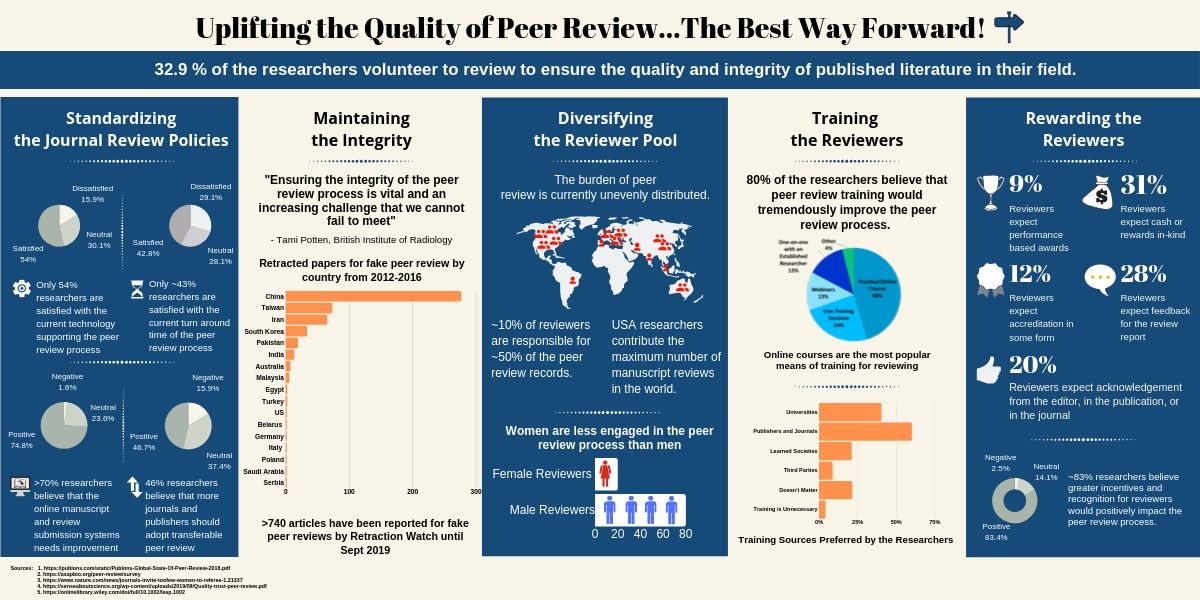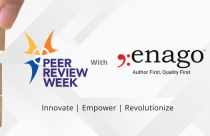Uplifting the Quality of Peer Review…The Best Way Forward!

Peer review is the heart of the academic publishing industry and is extremely important to maintain the excellency of the published scholarly literature. However, with the rapid rise in the number of cases reported for ethical violations due to pressure to publish, predatory journals, fake peer reviews, data manipulation, etc.; the need of the hour is to focus on improving the quality of the peer-review process and maintaining the trust of the research community. This infographic provides an overview of the underlying challenges in the peer review process and the best approaches to overcome those challenges to help uplift the quality of peer review.
The major factors that would help revamp the peer review process are:
- Standardizing the review process
Although the peer review workflow is common in most journals but some journals still differ in certain aspects like turnaround times for reviews, review submission systems, reviewing policies, etc. Streamlining and standardizing the review process by adopting innovative approaches like transferable peer review would definitely take the burden off the scholarly community and address some of the current challenges.
- Maintaining the integrity
Peer review is used for validating research before it is communicated to the entire community. To maintain the sanctity of the process, it is essential that reviewers follow the ethical principles at every step of the peer-review process.
- Diversifying the reviewer pool
The gradual rise in the number of submissions in the recent times has put a lot of pressure on the limited pool of volunteer reviewers. Collaborating with more expert reviewers from the emerging countries would take off some burden and evenly distribute the load.
- Training the reviewers
Most researchers feel the need for a clearer guidance for reviewing and that a formal training would positively impact their performance as a peer reviewer.
- Rewarding the reviewers
Awarding recognitions, rewards or incentives to to explicitly recognize the peer review contributions of the researchers would boost their spirits and the quality of the published literature.
These are some stumbling blocks which need to be overpassed for a stronger research community.
(Click here to download the infographic)











